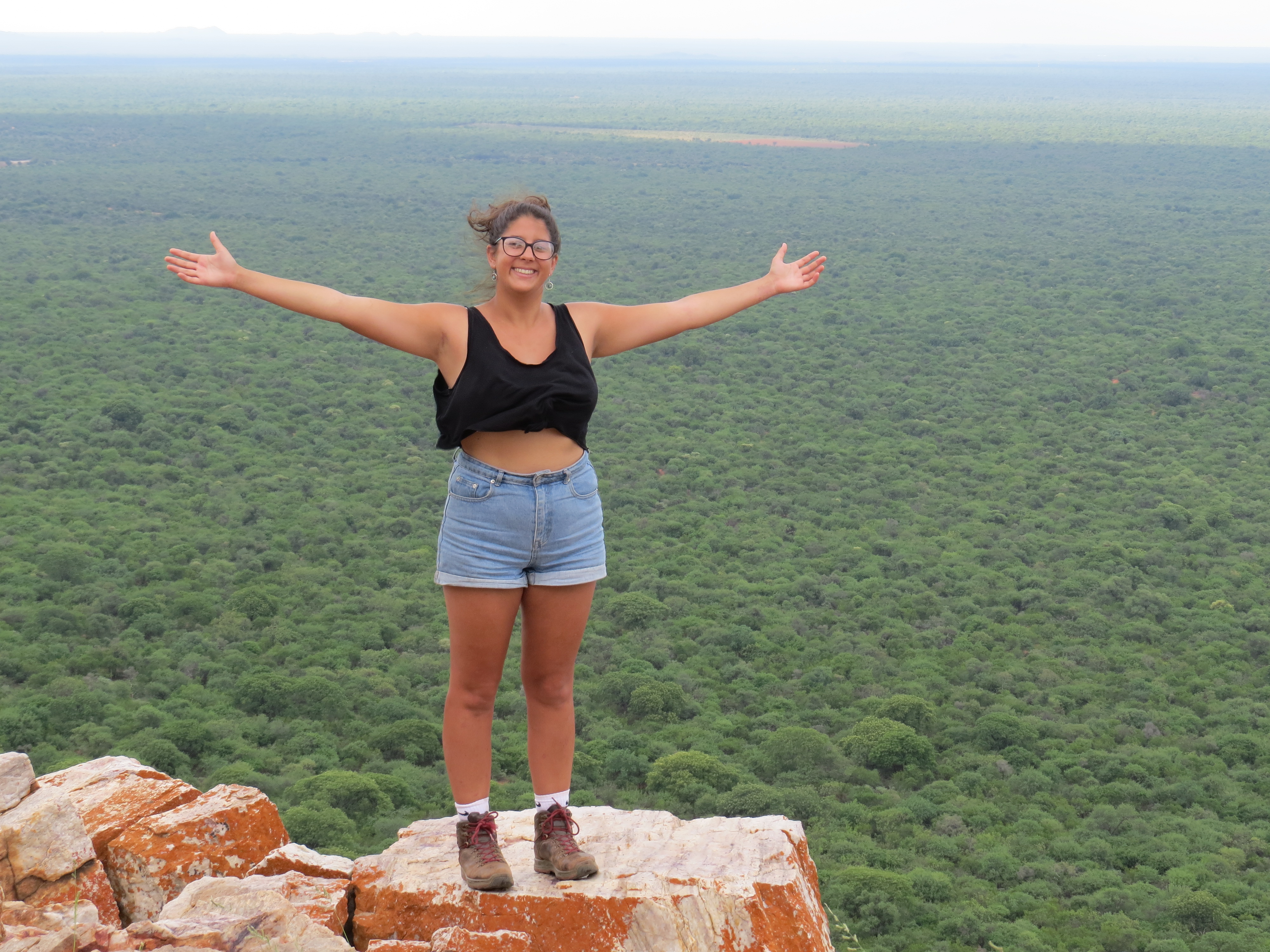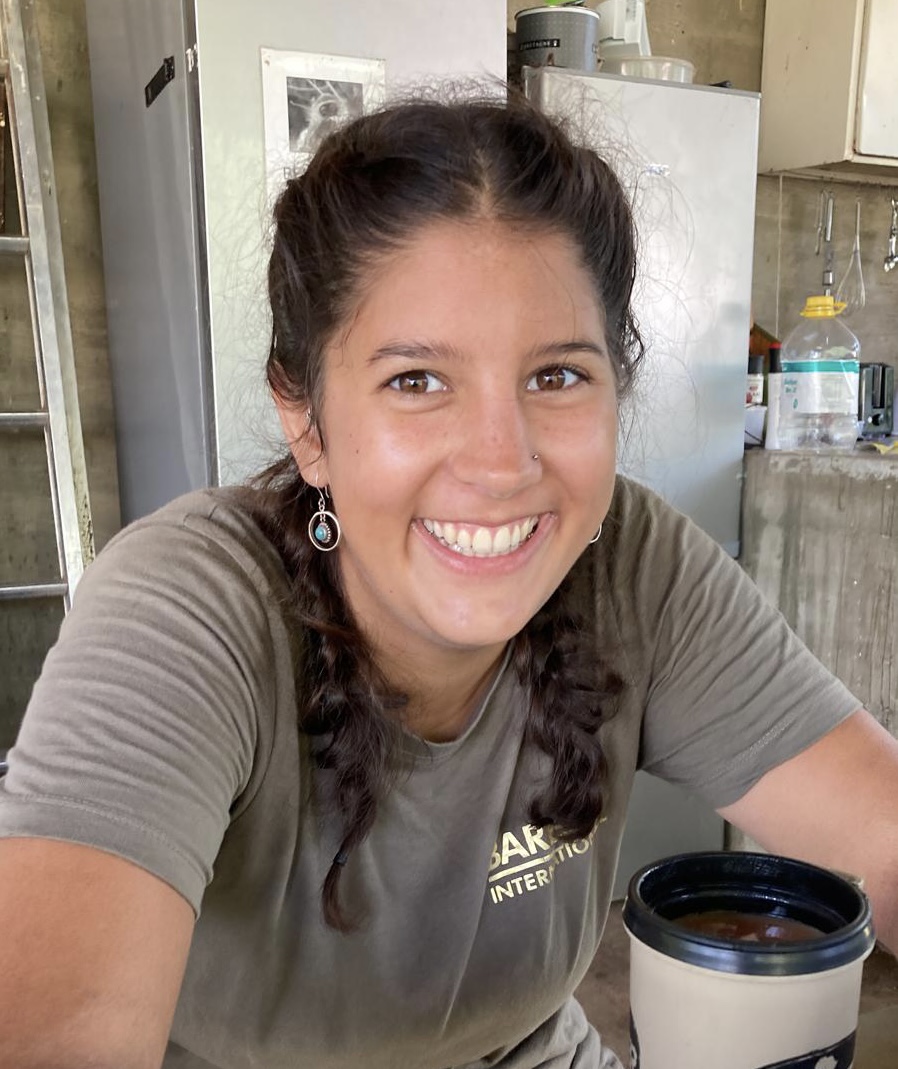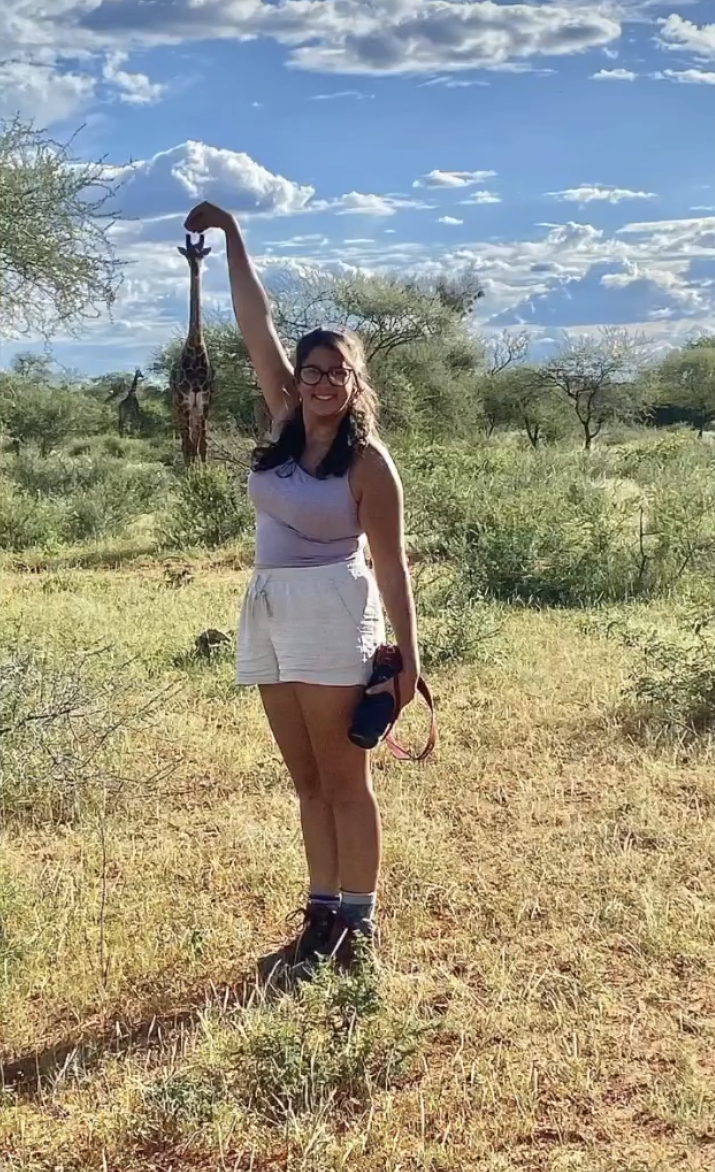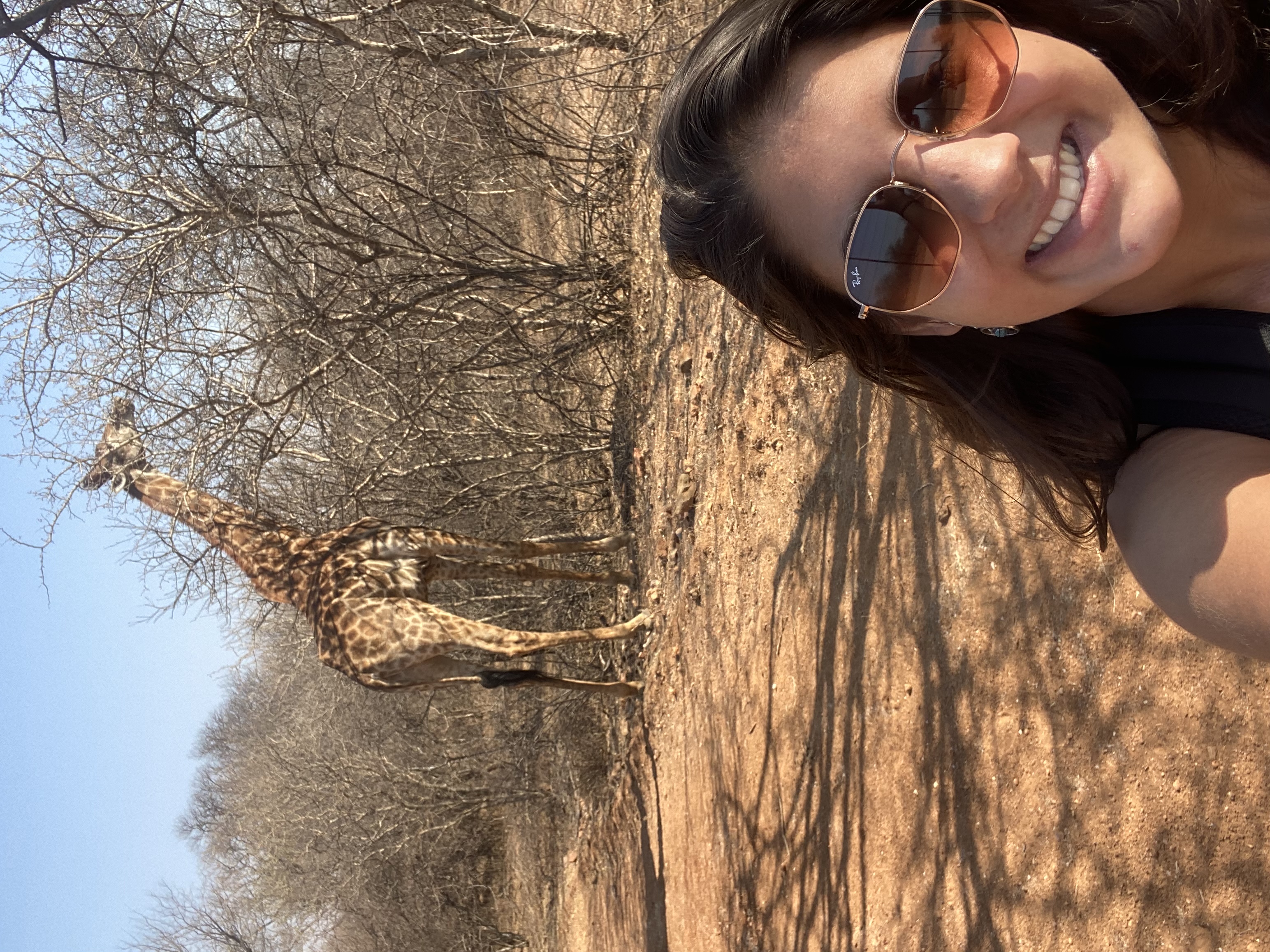
The year in professional practice is a wonderful opportunity to spend up to a year, between the second and final years, undertaking work placements with organisations relevant to your degree programme. We caught up with Chantal Kassam, currently carrying out research in a giraffe centre in South Africa, to ask her all about it.
Why did you choose to study a Year in Professional Practise?
When I found I could do a year in practice, with the support of the university, it was a no brainer. Having the safety net of people, you are familiar with, that know you on an academic level and want to help you succeed, it made choosing to pursue the reality extremely easy.
‘For me, it wasn’t a matter of choosing to do a year in professional practice. It was more “how can I make it happen?”
It has helped me learn what I love about conservation, what aspects of it I would like to pursue and those areas I wouldn’t.

Where was your placement?
I carried out research in the thermoregulatory behaviours in the Southern giraffe, at the Mogalakwena research centre in South Africa. I went into the field 5 days a week, twice a day on foot. Albeit exhausting, being in the presence of wild animals everyday was extremely rewarding. Every day was different, every day I had something new to talk about around the dinner table with other interns. Whether it be finding leopard tortoises, discovering new baby giraffes or being looked down upon by a giraffe strolling past you, only a meter away.
With all us international interns, it’s been like being part of one big family. We organised a couple of weekend trips to Kruger Park and Magoebaskloof, where we had amazing wildlife sightings, did adventure sports and a day trip to Moholoholo Rehabilitation Centre. For those who were able to take a day off, we also managed to get to Mapungubwe National Park.

What was your favourite memory?
It is extremely difficult to pick just one favourite memory, so I will share my top two moments while being here, both happening while being out in the field. At the end of an evening field session, I was about to head back but got distracted by a herd of giraffe with a juvenile, so of course I thought I would just watch them for a moment, seeing as the sun was starting to set, placing a golden glow over the landscape. Out of nowhere around 10-15 more giraffe started emerging out the bush, in front, behind and beside me. I stood in absolute amazement. As I started to identify all of the individuals, I couldn’t work out two of the juveniles. It was later when I returned back to camp and had a look at the photos, I discovered they were newborns, a week or two old. The moment was surreal, the discovery of two new juveniles was just the cherry on top.
Another favourite moment; occurred one early Saturday morning walk. Walking along a road I walk nearly every day, I heard Vervet monkeys alarm calling. Assuming it was a snake, I stopped and heard a loud, deep growl. I walked backwards a few meters tin time to see, two leopards run across the road. It was so fast and so incredibly amazing, I just stood…completely speechless, beaming ear to ear. Sadly, I was unable to capture the moment on camera.
What about academic or study support?
I have monthly meetings with my academic adviser at Kent throughout my internship, who was always excited to hear about my monthly adventures and checking up on my progress, living conditions and mental wellbeing. The placement team has also been very friendly and reminds me of teams meetings and all the other support they offer.
What skills have you developed for the workplace?
While working here I have developed many different skills; form data analysis, scientific writing, learning how to put theory into practice, management of how a fenced reserve is maintained in face of hardships like Covid pandemic. Communication with others when language is a barrier. Learning to be diplomatic and divert conversations when discussing topics of controversy in the workplace. Most of all I think time management and self-motivation has been something I have developed and become much better at, researching and organising plans to fruition has been a great learning curve, testing my reliance independence.
How has your degree helped your career prospects?
My degree has helped me to gain knowledge, skills and experience in wildlife conservation which has given me valuable insight to collecting and processing data which is a necessity in pursuing a career. Additionally, by gaining additional skills improved my communication and problem solving. To top it off, DICE has a huge network across the country and globe, studying at DICE may give a leg up when applying for roles within organisations where there are relationships are already established.
What do you want to do in the future?
At this moment in time, I remain undecided on the future but reaffirming my intent to contribute to the conservation of wildlife. There are many fields of conservation I would like to explore before deciding on a particular area.

What advice would you give to a prospective student considering taking a year in (industry, abroad, another subject)?
If you are thinking of taking year in industry, go for it. It will give you such insights into what you would like or not like to do in the future, and helps you discover yourself in a professional way. You’ll leave university with an edge against your peers, you have the experience employers want and need. As well as, a whole new network of people, making you a more attractive hire.
You need to be able to keep motivated when finding a placement, keep resilient, you will be told “no” or “sorry but you don’t have enough experience” more than once. You will receive more no’s more than yes’, it can make you feel defeated, but if you want it, you will get it, as long as you keep focused, working on what you want and remain open minded to different experiences and you will find the most amazing placement.
Chantal Kassam is studying for a BSc (Hons) in Wildlife Conservation with Year in Professional Practice.




